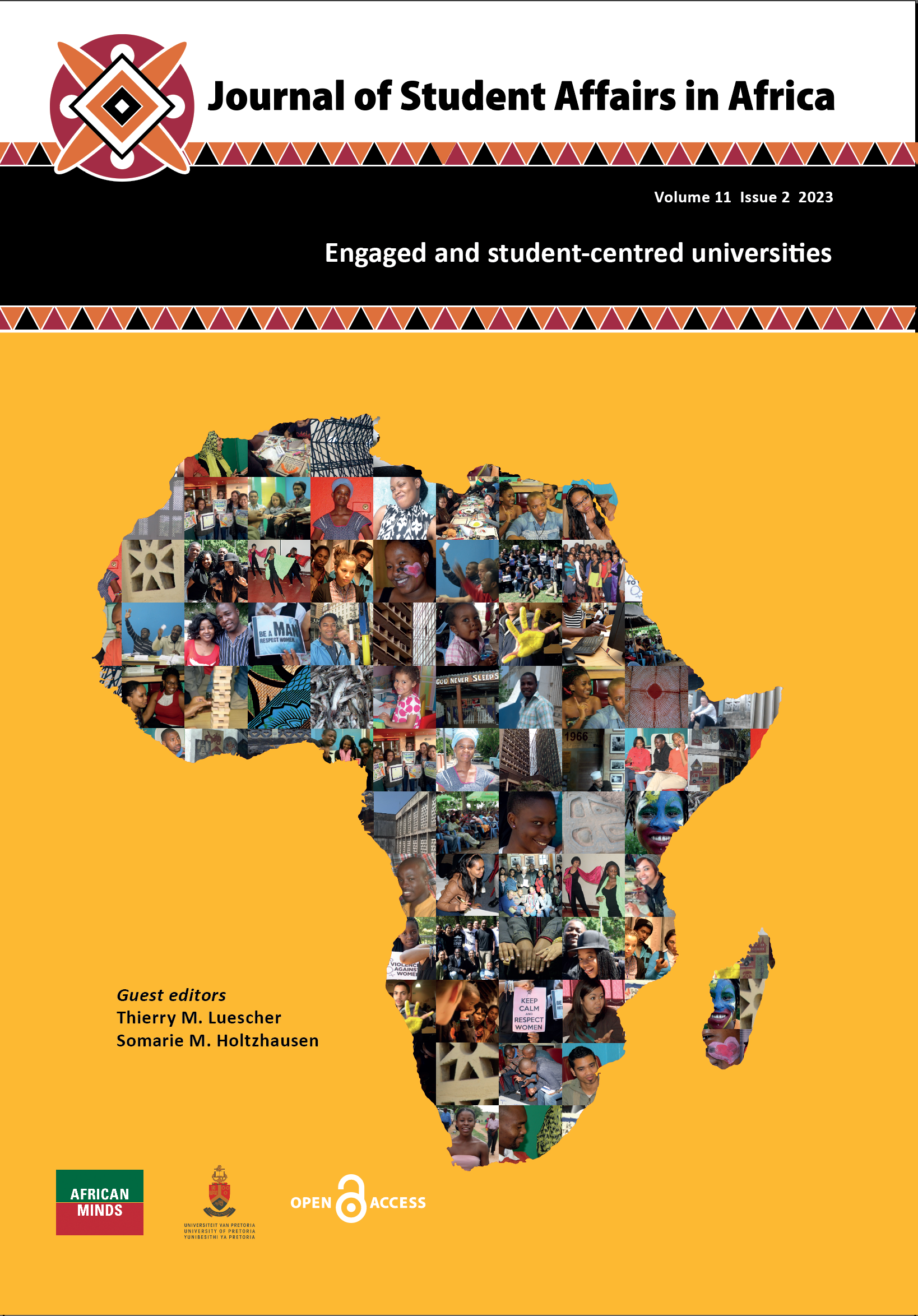Leading higher education transformation: The role of student affairs
DOI:
https://doi.org/10.24085/jsaa.v11i2.4914Abstract
Student affairs practitioners and researchers are well positioned to contribute holistically to
student success and as such could play a strategic role in the transformation of higher education.
The aim of this article is to illustrate that a key strategic objective of student affairs is to contribute
significantly towards student success. This article reports on a study (January, 2021) entitled ‘Towards
a qualitative framework for blending equity and excellence in transforming South African higher
education transformation to achieve development’ in which the promotion of student success is
viewed as central to institutional transformation. The purpose of the study was to contribute to a
more comprehensive qualitative framework for higher education transformation in South Africa by
reconciling notions of ‘equity and excellence’. Interviews were conducted with sixteen leaders in the
field of higher education in South Africa. Thereafter, interview data were triangulated with strategic
documents of various entities concerned with higher education transformation. The theoretical
framework encapsulated the human capital and human capability theories and argues further for
a reconciliation of these theories to promote social justice and human well-being. The study used
grounded theory methods to analyse and present the comprehensive qualitative framework. The
study found that student success was the most critical factor driving institutional transformation. In
addition, four other interrelated elements were presented as the core elements of a comprehensive
framework. Based on these findings, this article explores the implications for student affairs further,
using unpublished input gathered by the author through reflective conversations with stakeholders
at the University of Cape Town. In this regard the notion of a set of student learning imperatives
(graduate attributes) becomes relevant to the discussion when student affairs practitioners and
researchers collaborate with faculties and departments on strategic projects.
Downloads
Published
Issue
Section
License
Copyright (c) 2023 Chanaaz January

This work is licensed under a Creative Commons Attribution-NonCommercial-ShareAlike 4.0 International License.
Authors who publish with this journal agree to the following terms:
Authors retain copyright and grant the journal right of first publication with the work simultaneously licensed under the Creative Commons Attribution Share-alike 4.0 International License that allows others to share the work with an acknowledgement of the work's authorship and initial publication in this journal.
Authors are able to enter into separate, additional contractual arrangements for the non-exclusive distribution of the journal's published version of the work (e.g., post it to an institutional repository or publish it in a book), with an acknowledgement of its initial publication in this journal.
Authors are permitted and encouraged to post their work online (e.g., in institutional repositories or on their website) prior to and during the submission process, as it can lead to productive exchanges, as well as earlier and greater citation of published work (See: The Effect of Open Access).


